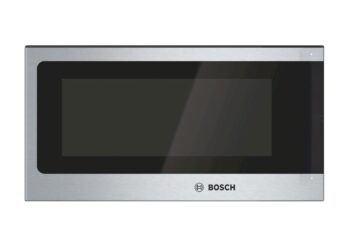According to Worldometers, the Netherlands has a population of approximately 17 million people, boasting a GDP of about $61,000. Also, the Netherlands has one of the most educated populations in the world. The average Dutch is progressive in exploring new ideas. They are never afraid to try something new.
If you are looking to kickstart a business in the Netherlands but having reservations about the process, getting the help of corporate services can be beneficial for you.
Dutch corporate services aid foreigners and locals in registering their businesses in the Netherlands. They offer a wide range of services, including registration and post-registration services.
Therefore, if you are itching to start a business in Holland, all you have to do is read this post until the end. In this article, we will explain everything you need to know about company registration in Netherlands.
Is The Netherlands A Friendly Place For Startups?
The Netherlands remains a fantastic location to establish businesses, so many foreign business people prefer to open their startups there. Non-EU citizens are allowed to start their businesses there. But, the first thing they need to do is to get a Startup Visa.
The Startup Visa qualifies them for a one-year residency permit. It also allows them to register and operate their business. And after one year, the applicant can apply for a permanent residency. But that depends on several factors, including the profit made by their business.
Company Formation in The Netherlands
You must go through various stages to successfully register a company in the Netherlands. As a foreign investor, you need a Dutch Facilitator or business agent to help you with the process. We will break down the various steps for company formation in Netherlands below.
Step I
You need to provide all the documents and required information to your Dutch facilitator. The information includes the directors’ and shareholders’ information and passport copies of directors and shareholders. A copy of Trade Register and one euro stipulated for social capital are also needed.
Step II
You need to visit a Dutch Public Notary to sign company incorporation papers. You can also sign the documents from your country and have the original copies sent to the Dutch facilitator. The latter means you don’t need to visit the Netherlands in person.
Step III
A Dutch Facilitator will file for incorporation at the Dutch Trade Registry. The applicant has to look for a unique business name. With that sorted out, the investor gets a certificate, and the registry reserves the name.
Next, the business owner needs to open a Dutch bank account. The investor must deposit the least stipulated capital share. After that, a notary must draft and sign the company’s deed of incorporation.
A Netherlands tax number is also necessary to run your business. The tax authority at the local level needs to see your registration form before they can give you a tax number. The income tax needs extra registration. You can get the tax forms at the local office of the authorities involved. Or you can get them from designated websites.
Finally, after you register a company in the Netherlands, you need to hire a professional accountant to help you with taxes, financial, and auditing.
The Timeline for Registering a Business in the Netherlands
If you plan to register a startup in the Netherlands, you need to know how long the process will take. Starting a company in Netherlands is not a task that one can complete in 24 hours. It takes some time. We will break down the time for you below;
Choosing a unique name for your business only takes a couple of hours. Drafting and signing the deed of incorporation by the company’s notary can take 24 hours or more. Also, it takes about one day to have the company registered with the DCR (Dutch Company Registrar). And to get a tax identification number, registering the company with tax authorities will take 24 hours.
Remember that the company owner has to open a bank account. Plus, they have to choose a physical location for the company’s legal address. These are processes that take a bit of time. With an experienced Netherlands company formation team, you can finish the entire process on time.
Corporate Tax Rate in Netherlands
Before you start your company registration in Netherlands, you should know about the company taxation rules. Every company needs to follow tax regulations. That rule is applicable for local and foreign investors.
Taxes depend on several factors. Basic taxes include withholding tax on interests, royalties, dividends, and corporate income tax. The others are payroll, property, social security, VAT, and transfer taxes.
Tax advisors Netherlands can explain all the tax details you need to know. They can also explain various tax incentives for foreign investors.
If you have made up your mind in opening a business in the Netherlands, go through this CHECKLIST to ensure that you are on the right path. It will enable you to organize yourself accordingly.
Conclusion
The Netherlands has one of the most promising economies to invest in today. If you are looking for a good place for your startup company, consider doing your business in the Netherlands. Registering a company there is straightforward. Before you proceed with the process, make sure that you have all the requirements and documents needed.
The mistake many people make is they try to do the registration themselves. Instead, contact trusted and experienced corporate services to help you with Netherlands company formation, and the rest will be history.
FAQs
Can I register a startup without a residency permit?
No. It is only possible if you are a citizen of any of the European countries. A non-EU citizen must obtain a residency permit before operating a company in the Netherlands. A work permit is also needed.
What is the duration of the registration process?
With all the necessary registration documents available, registering a company won’t take longer than five days. The more experienced the agency you work with, the shorter it will take to register your company.
Foreign investors are affected mainly by double taxation; how can I avoid this?
The only way to avoid this is if your country is in a tax treaty agreement with the Netherlands. Other than that, you are likely to be up for double taxation. There are company formation experts willing to share every tax-related detail with passionate business owners.
What taxes should I bother about if I intend to open a business in the Netherlands?
The direct taxes businesses incur are income tax, VAT, payroll tax, income tax, and corporation tax (for incorporated companies). Hire the services of tax advisors to all the details in this regard.







